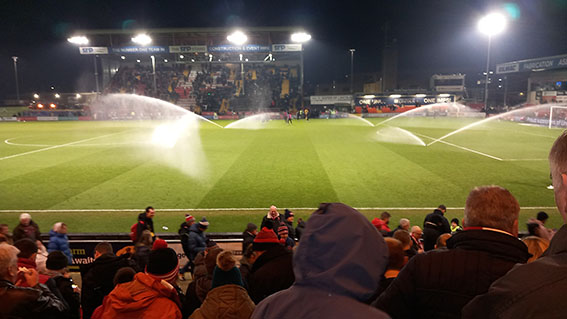According to the UN, there are currently 25.9 million refugees in the world. Amongst the chaos and uncertainty of the Covid-19 outbreak, it is easy to forget about such human rights crises. Yet those living in refugee camps are one of the most at-risk populations in the current climate. This article will give 5 reasons explaining why this population is so vulnerable.
1. Living in close proximity

Cox’s Bazar, a large refugee settlement in Bangladesh, is severely overcrowded with each person having little more than 10m2 of space. That’s roughly the same as a medium-sized garden shed. In the UK it is illegal for a one-bed flat to be less than 37m2. This high density causes obvious issues when trying to practise social distancing, to prevent the spread of a disease such as Covid-19. This risk has already materialised in the recent spread of measles and diphtheria.
2. Lack of infrastructure/healthcare

Refugee camps are often set up quickly and with very limited resources. This results in a severe lack of necessary infrastructure such as proper toilets, waste disposal and running water. Coupled with limited access to food, this creates a deteriorating state of health for the majority of those living in camps. Whilst there are hospitals, they are very basic. Cox’s Bazar currently has about 300 hospital beds available. In London alone, an additional 4000 hospital beds are being made available. In simple terms, the additional beds in London are the equivalent per person to the entire capacity in the camp at Cox’s Bazar. This shows the disparity in the capability of dealing with Covid-19 in refugee camps.
3. Communication barriers

A common theme in refugee camps is a lack of proper communication technology. There is often very little mobile signal and few affordable service providers, so even if a refugee has access to a phone they can’t always use it. The spread of timely, expert information is crucial to effectively mitigate the impacts of health crises such as the Covid-19 outbreak. So, the gap in information caused by the lack of communication further increases the risks faced by those living in refugee camps.
4. Natural disasters

The impacts of natural disasters can be catastrophic on refugee camps. Take Kutupalong or Balukhali camps in Cox’s Bazar for example, home to around 750,000 Rohingya refugees. In June, the monsoon season will sweep Bangladesh the same way it does every year. The flooding, mud and destruction brought by extreme winds and rainfall exaggerate the lack of sanitation, increasing the spread of diseases.
5. Aid workers

Another risk factor associated with refugee camps is the reliance on national and international aid workers. With travel restrictions worldwide and general guidance to implement social distancing between individuals, aid workers will be putting themselves in increased danger by continuing to work in refugee camps during the pandemic, if they can get to the camps at all. This personal risk and restricted travel, in turn, threatens to remove a key source of support for refugees, leaving them more isolated than they were before the outbreak.









